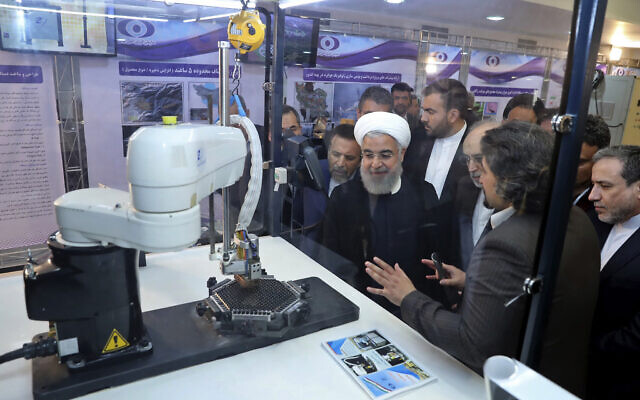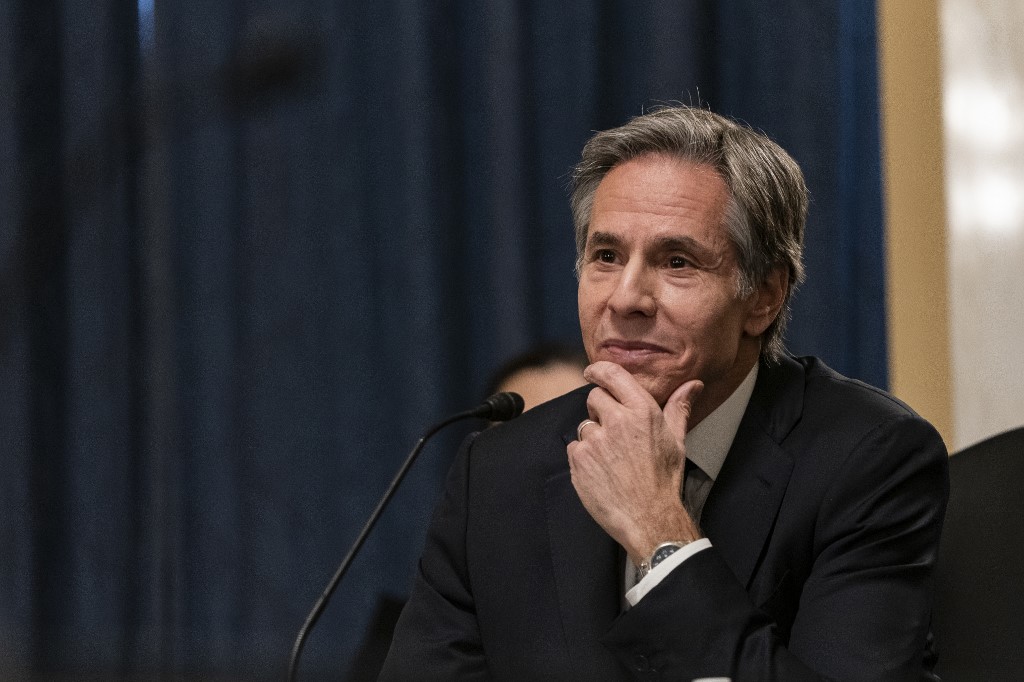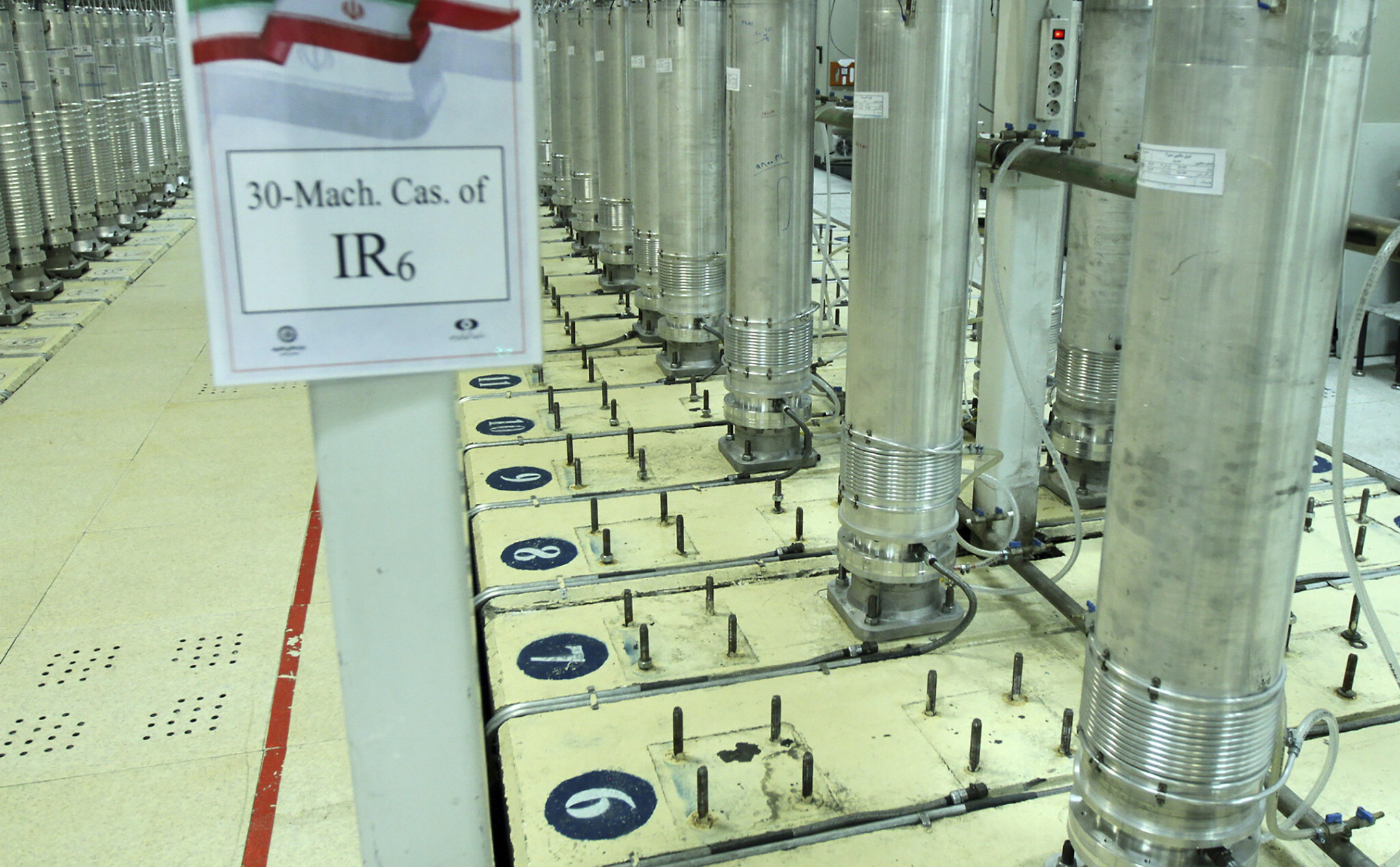US secretary of state says at current rate Tehran is months away from being able to produce material for weapon, but timeframe could shorten

US Secretary of State Antony Blinken said Sunday that Iran was currently months away from being able to produce enough material to build a nuclear weapon. And, he said, that timeframe could be reduced to “a matter of weeks” if Tehran further violates restrictions it agreed to under the 2015 nuclear deal with world powers.
In an interview with NBC News, Blinken reiterated the Biden administration’s intention to return to the deal, formally known as the Joint Comprehensive Plan of Action (JCPOA), if Iran resumes compliance first.
He would not commit to including the issue of American citizens detained by Iran as part of any agreement.
Last month, Tehran announced it was beginning to enrich uranium up to 20 percent — far beyond the 3.5 percent permitted under the nuclear deal, and a relatively small technical step away from the 90 percent needed for a nuclear weapon. Iran also said it was beginning research into uranium metal, a material that technically has civilian uses but is seen as another likely step toward a nuclear bomb.
Iran said last week it would also move to restrict short-notice inspections of suspect nuclear facilities from late February.

It said Thursday it plans to install 1,000 new centrifuges at the Natanz nuclear facility and that its scientists had exceeded previous goals for uranium enrichment.
US President Joe Biden on Friday selected Robert Malley, who helped negotiate the 2015 nuclear deal, to serve as his envoy on Iran. The move is seen as another indication that the Biden administration intends to return to the JCPOA. Hawks fear Malley will be too soft on Tehran and not supportive enough of Israel.
A State Department official told AFP on Friday that Blinken was “building a dedicated team,” led by Malley, to address Washington’s relations with Iran.
Tensions have heated in the Middle East in recent weeks, both before and after Biden assumed control of the White House.
Iran and the Trump administration exchanged a steady stream of threats before Trump’s term ended on January 20, and Iran carried out fresh breaches of the nuclear agreement. Iran’s aggressive moves were believed to be partially aimed at increasing its leverage ahead of negotiations with Biden.
Iran warned Monday the US can’t return to the deal simply by signing onto the agreement again, but rather must first remove all of the sanctions it placed on the country after it withdrew from the treaty.
Tehran has recently dug in on its position that US sanctions be lifted before it considers making any conciliatory gestures itself, while increasing pressure on Washington by further reducing its own commitments to the deal.

On Sunday, the head of Iran’s influential Revolutionary Guard Corps declared his country was in a position where it could work toward overcoming sanctions without remaining in the nuclear deal.
Meanwhile Iran insists it is not seeking to develop nuclear weapons, a position repeated last week by its Foreign Minister Mohammad Javad Zarif.
The Biden administration’s policy on Iran is expected to be a point of contention between the new US administration and Israel. Israeli officials have voiced strong objections to the US rejoining the nuclear deal, and have also issued threats against Iran in recent weeks.
Israel, along with the United Arab Emirates and Bahrain, are all seeking to dissuade the Biden administration from returning to the Iran nuclear agreement in its original form. The Biden administration has pledged to consult with Israel and its other Middle East allies before making decisions regarding Iran.
Defense Minister Benny Gantz said in an interview broadcast Sunday that Israel is still keeping open the possibility of taking action against Tehran’s nuclear project if necessary.
IDF chief Aviv Kohavi issued a rare public criticism of the US plans on Tuesday and said that he had ordered the military to develop operational plans for striking Iran’s nuclear program. Gantz later appeared to rebuke Kohavi for the comments.

No comments:
Post a Comment